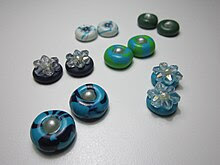Ronnee Strickland — Information about Using Trademarks for Comparisons
I often wondered if I could use any trademark and use it with my information. It is an entirely separate part of the legal system and it’s best to hire an IP attorney to help you with this. Under trademark law, you are generally permitted to use a trademark as a means for comparison but for few other reasons. For example, you could create a newspaper advertisement that incorporates your mark and your competitors' marks in order to describe a difference between the companies. (Comoarisons)
Imagine that you make a product which you truly believe is tastier and less expensive than any other company's product. You could include on your advertisement the logo of that company, along with the price of its comparable product from another company making a similar product.
There are very important caveats apply here, however. First, you may not alter your competitors' trademarks in a way that is derogatory or misleading. Not even for humor. (For example, you cannot dress up as the other company’s mascot and make him look unattractive!) These activities could subject you to a claim of trademark disparagement. You will have an IP attorney whether you wanted one or not!
Second, any comparative information that you use must be accurate. Don’t use a subjective statement such as “I think my product tastes better” as it’s very difficult to judge for accuracy but factual information is not.
While subjective statements (which coffee tastes better, which product is easier to use, and so forth) are difficult to judge for accuracy, factual information is not.
If your company is called Ronnee Strickland & Associates, and your name is Ronnee Strickland, you can use that name in a logo. You can make any unique logo and put Ronnee Strickland & Associates on that logo but you cannot take Coca-Cola’s logo and put Ronnee Strickland & Associates on that logo.
In other words, any lies associated with your use of a competitor's trademark could subject you up to a claim of trademark infringement or disparagement. Assuming that your statements about a competitor are true, however, trademark law does provide some degree of leeway to use registered marks, even without permission.


Interesting. I would like more on this, going further into depth.
ReplyDelete